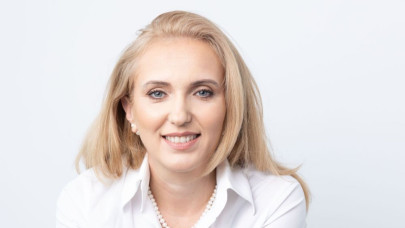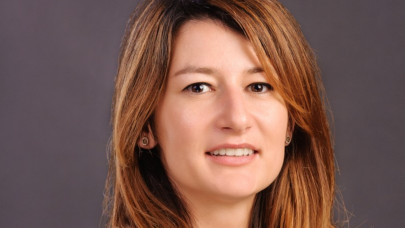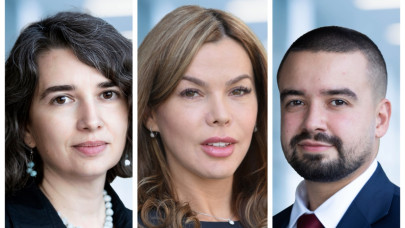
ENGIE accelerates growth of renewable energy in Romania
The energy transition is a central priority for ENGIE, both worldwide and in Romania.

The energy transition is a central priority for ENGIE, both worldwide and in Romania.

Romania is increasingly positioning itself as a promising destination for green investments, with several sectors showing strong potential.

Romania has set ambitious targets to reduce greenhouse gas emissions by 78% by 2030 and achieve climate neutrality by 2050.

A significant portion of EU grants is allocated to support sustainable initiatives, further driving the rise in these types of loans.

In Romania, L'Oréal encourages people to choose larger sizes and refills while helping them understand how and where to recycle our packaging.

BAT aims to achieve a 50% reduction in our Scope 1, 2 & 3 emissions by 2030 and to be Net Zero across their value chain by 2050.

Restart Energy's long-term goals center around driving significant growth in renewable energy production while embedding sustainability into every facet of our operations.

Liberty Steel is working hard to improve their renewable energy sources, with the first 50MW of our proposed 250MW on-site solar farm programme already in development.

For the rest of this year, Rezolv Energy will focus on the four projects in our current portfolio.

Romania is a key market for the Coca-Cola System and for our sustainability agenda, not only because it's the right thing to do for the environment.

OMV Petrom is implementing measures to reduce its GHG emissions footprint by transitioning from non-renewable energy sources to renewable energy sources.

For the year 2024, Raiffeisen Bank Romania will continue to finance eligible projects that support the sustainable development of key sectors of the economy,

Kaufland Romania will focus on expanding the range of sustainable products, collecting and packaging recycling, reducing food waste, and strengthening internal and external communication on sustainability.

Romanian brewing companies have invested in advanced wastewater treatment plants to treat and reuse water and reduce the pollution load on local water bodies.

Urgency is one of the biggest challenges in implementing sustainability strategies.

The future of ESG (Environmental, Social, and Governance) in Romania appears promising.

The company is working to advance its sustainability commitments in the four focus areas of sustainable innovation, climate, biodiversity, and inclusion, diversity and equity.

For the green transformation of the Romanian economy, it is of critical importance to have a true alignment of the private and public sectors.

Romania has significant potential for renewable energy, with regions like Dobrogea attracting investments in wind energy projects due to high-intensity winds.

As the global imperative for sustainable business practices continues to intensify, companies worldwide are facing the challenge of adapting to this evolving landscape.

The energy transition is a central priority for ENGIE, both worldwide and in Romania.
Ingka Investments, the investment arm of the Ingka Group – the largest IKEA retailer, has inaugurated its first solar park in Poland, reinforcing the commitment to the renewable energy transition.
Greenvolt Power has completed the sale of the Pelplin Wind Farm (pictured) to Enea Nowa Energia, a subsidiary of the Enea Group, one of Poland's largest electricity providers.
Hidroelectrica has signed a contract for the purchase of its first Li-ion battery energy storage system, which will be deployed at the Crucea Nord Wind Farm.
ENGIE Romania and the Viitor Plus Association have completed the project "Education and Practice in Building Energy Efficiency," an initiative that combines technical solutions with educational outreach for students and teachers nationwide.